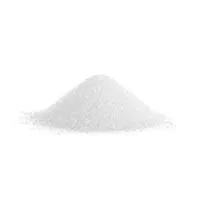
Understanding E223 Preservative and Its Impact on Food Safety and Quality
Understanding E223 Preservative What You Need to Know
In the world of food preservation, various additives are used to extend the shelf life of products and maintain their quality. One such additive is E223, also known as sodium metabisulphite. This compound has gained attention for its multifaceted role in food processing, but its use does come with a mix of benefits and concerns.
What is E223?
E223 is a type of sulfite, which is derived from sulfur dioxide. In its powdered form, this chemical appears as a white crystalline substance. Sodium metabisulphite is commonly used in food and beverage industries as a preservative, antioxidant, and in some cases, a bleaching agent. It works effectively to inhibit the growth of bacteria and mold, which helps in prolonging shelf life.
Applications of E223
E223 is widely used in a variety of food products. It is often found in dried fruits, wines, soft drinks, and some processed vegetable products. Its ability to act as a preservative means it is especially valuable in dry goods, as it helps prevent the browning that occurs when fruits and vegetables are exposed to air.
In wine production, E223 is crucial for preventing oxidation and maintaining the flavor profile of the wine. It also plays a role in maintaining the bright color of certain beverages and food items. Moreover, sodium metabisulphite can be used in the preparation of some pharmaceuticals and cosmetics, highlighting its versatility beyond the food industry.
Health Concerns Related to E223
While E223 has numerous benefits, it is not without controversy. Some people may be sensitive to sulfites, leading to allergic reactions that can include symptoms like headaches, asthma attacks, and gastrointestinal distress. Individuals with asthma are particularly urged to be cautious, as sulfite sensitivity can trigger their symptoms.
e223 preservative

Furthermore, the use of E223 in food and beverages is regulated in many countries. Certain levels are deemed acceptable for consumption; however, exceeding these levels can pose health risks. As such, consumers are encouraged to read labels carefully and remain aware of the sulfite content in their food products.
The Regulatory Landscape
Various regulatory bodies, including the European Food Safety Authority (EFSA) and the U.S. Food and Drug Administration (FDA), have established guidelines governing the use of E223 in food. These regulations are designed to ensure that the additive is used safely and effectively, balancing the need for preservation with potential health risks.
In the European Union, foods containing sulfites must be labeled when the concentration exceeds 10 mg/kg. This transparency allows consumers to make informed decisions about their food choices, especially those who are sensitive to sulfites.
Conclusion
E223, or sodium metabisulphite, serves an important role in modern food preservation, maintaining product quality and extending shelf life. Its applications span across various food and drink industries, emphasizing its versatility and practicality.
However, it is essential to be aware of the potential health risks associated with sulfite sensitivity. For those without sensitivity, E223 can be a beneficial component of food safety and quality. As always, being informed and cautious about food additives can help consumers make better health choices and enjoy their favorite foods safely.
In conclusion, while the presence of E223 in your food might not always be visible, its effects on freshness, taste, and safety are significant. By understanding what E223 is and how it works, you gain the knowledge necessary to navigate dietary choices while remaining mindful of your health and well-being.
-
Pure Sodium Dichloroisocyanurate Dihydrate | Powerful DisinfectantNewsAug.29,2025
-
Industrial Chemicals: Quality & Purity for Every IndustryNewsAug.28,2025
-
Nitrile Rubber Honoring Strict Production StandardsNewsAug.22,2025
-
Aspartame Ingredients Honoring Food Safety ValuesNewsAug.22,2025
-
Fertilizer for Balanced Plant NutritionNewsAug.22,2025
-
Cyanide Gold Processing with High Purity AdditivesNewsAug.22,2025
-
Formic Acid in Textile Dyeing ApplicationsNewsAug.22,2025
Hebei Tenger Chemical Technology Co., Ltd. focuses on the chemical industry and is committed to the export service of chemical raw materials.
-

view more DiethanolisopropanolamineIn the ever-growing field of chemical solutions, diethanolisopropanolamine (DEIPA) stands out as a versatile and important compound. Due to its unique chemical structure and properties, DEIPA is of interest to various industries including construction, personal care, and agriculture. -

view more TriisopropanolamineTriisopropanolamine (TIPA) alkanol amine substance, is a kind of alcohol amine compound with amino and alcohol hydroxyl, and because of its molecules contains both amino and hydroxyl. -

view more Tetramethyl Thiuram DisulfideTetramethyl thiuram disulfide, also known as TMTD, is a white to light-yellow powder with a distinct sulfur-like odor. It is soluble in organic solvents such as benzene, acetone, and ethyl acetate, making it highly versatile for use in different formulations. TMTD is known for its excellent vulcanization acceleration properties, which makes it a key ingredient in the production of rubber products. Additionally, it acts as an effective fungicide and bactericide, making it valuable in agricultural applications. Its high purity and stability ensure consistent performance, making it a preferred choice for manufacturers across various industries.





